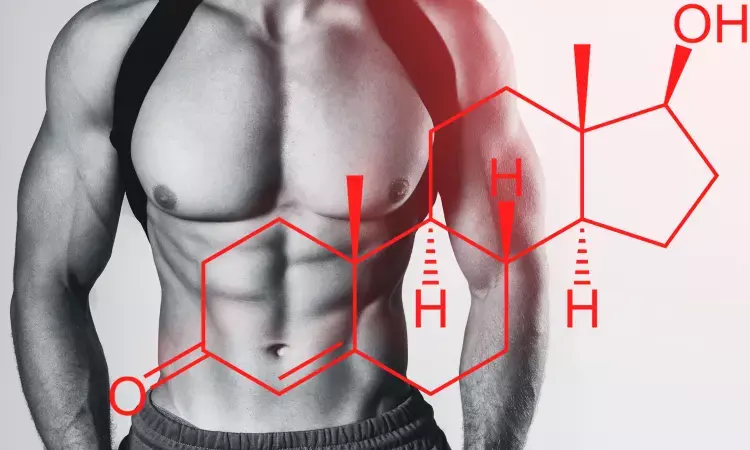- Home
- Medical news & Guidelines
- Anesthesiology
- Cardiology and CTVS
- Critical Care
- Dentistry
- Dermatology
- Diabetes and Endocrinology
- ENT
- Gastroenterology
- Medicine
- Nephrology
- Neurology
- Obstretics-Gynaecology
- Oncology
- Ophthalmology
- Orthopaedics
- Pediatrics-Neonatology
- Psychiatry
- Pulmonology
- Radiology
- Surgery
- Urology
- Laboratory Medicine
- Diet
- Nursing
- Paramedical
- Physiotherapy
- Health news
- Fact Check
- Bone Health Fact Check
- Brain Health Fact Check
- Cancer Related Fact Check
- Child Care Fact Check
- Dental and oral health fact check
- Diabetes and metabolic health fact check
- Diet and Nutrition Fact Check
- Eye and ENT Care Fact Check
- Fitness fact check
- Gut health fact check
- Heart health fact check
- Kidney health fact check
- Medical education fact check
- Men's health fact check
- Respiratory fact check
- Skin and hair care fact check
- Vaccine and Immunization fact check
- Women's health fact check
- AYUSH
- State News
- Andaman and Nicobar Islands
- Andhra Pradesh
- Arunachal Pradesh
- Assam
- Bihar
- Chandigarh
- Chattisgarh
- Dadra and Nagar Haveli
- Daman and Diu
- Delhi
- Goa
- Gujarat
- Haryana
- Himachal Pradesh
- Jammu & Kashmir
- Jharkhand
- Karnataka
- Kerala
- Ladakh
- Lakshadweep
- Madhya Pradesh
- Maharashtra
- Manipur
- Meghalaya
- Mizoram
- Nagaland
- Odisha
- Puducherry
- Punjab
- Rajasthan
- Sikkim
- Tamil Nadu
- Telangana
- Tripura
- Uttar Pradesh
- Uttrakhand
- West Bengal
- Medical Education
- Industry
Combo of Testosterone therapy and lifestyle modification may improve metabolic profile of prediabetic men

Italy: Testosterone replacement therapy was associated with improved metabolic profiles for men with hypogonadism and prediabetes, compared with controls, according to a systematic review published in Andrology. Further testosterone replacement therapy was associated with better triglyceride levels for patients in the treatment cohort, said the researchers from Medical Department, Endocrinology Unit, Azienda Usl, Maggiore-Bellaria Hospital, Bologna, Italy
Type 2 diabetes mellitus and prediabetes are related to reduced circulating testosterone levels. 20%–30% of prediabetic and diabetic subjects show T deficiency, while T supplementation to hypogonadal subjects improves body composition and glucose levels, as shown in the meta-analysis.
So, a hypothesis could state that “T replacement therapy (TRT) confers benefits in hypogonadal men with diabetes or prediabetes.”
The present systematic review researched the above background to the core, as there needs to be more data on the conflicting role of TRT in such patients.
The researchers did a comprehensive systematic review and also included 4682 patients seeking medical care for sexual dysfunction at the University of Florence were also considered in the study.
The study results could be summarised as follows:
- Patients with impaired fasting glucose had three nmol/L lower total testosterone levels than controls.
- An impaired fasting glucose had a 1.8-fold increased risk of hypogonadism than those with normal glucose levels.
- The best predictors of reduced total testosterone levels were waist circumference and body mass index.
- Secondary hypogonadism was twice higher in subjects with impaired fasting glucose than in the general population.
- TRT improved body composition, insulin resistance, and glucose profile. This was observed in impaired fasting glucose and type 2 diabetes. However, the effect on weight, lipid, and sexual function was less evident.
The researchers discussed that weight loss and physical activities improve both metabolic profile and testosterone levels.
We suggest combining TRT and lifestyle modifications in symptomatic hypogonadal men to motivate patients better for performing physical activity, as it results in not only weight loss but also metabolic profile and sexual function improvement.
Further studies are warranted in this context.
Concluding further, metabolic derangements by significantly lower T circulating levels. This can be improved by TRT. The weight loss and physical activities improve both metabolic profile and T levels, and hence combined approach is worthwhile.
Further reading:
https://onlinelibrary.wiley.com/doi/10.1111/andr.13367
BDS, MDS in Periodontics and Implantology
Dr. Aditi Yadav is a BDS, MDS in Periodontics and Implantology. She has a clinical experience of 5 years as a laser dental surgeon. She also has a Diploma in clinical research and pharmacovigilance and is a Certified data scientist. She is currently working as a content developer in e-health services. Dr. Yadav has a keen interest in Medical Journalism and is actively involved in Medical Research writing.
Dr Kamal Kant Kohli-MBBS, DTCD- a chest specialist with more than 30 years of practice and a flair for writing clinical articles, Dr Kamal Kant Kohli joined Medical Dialogues as a Chief Editor of Medical News. Besides writing articles, as an editor, he proofreads and verifies all the medical content published on Medical Dialogues including those coming from journals, studies,medical conferences,guidelines etc. Email: drkohli@medicaldialogues.in. Contact no. 011-43720751


